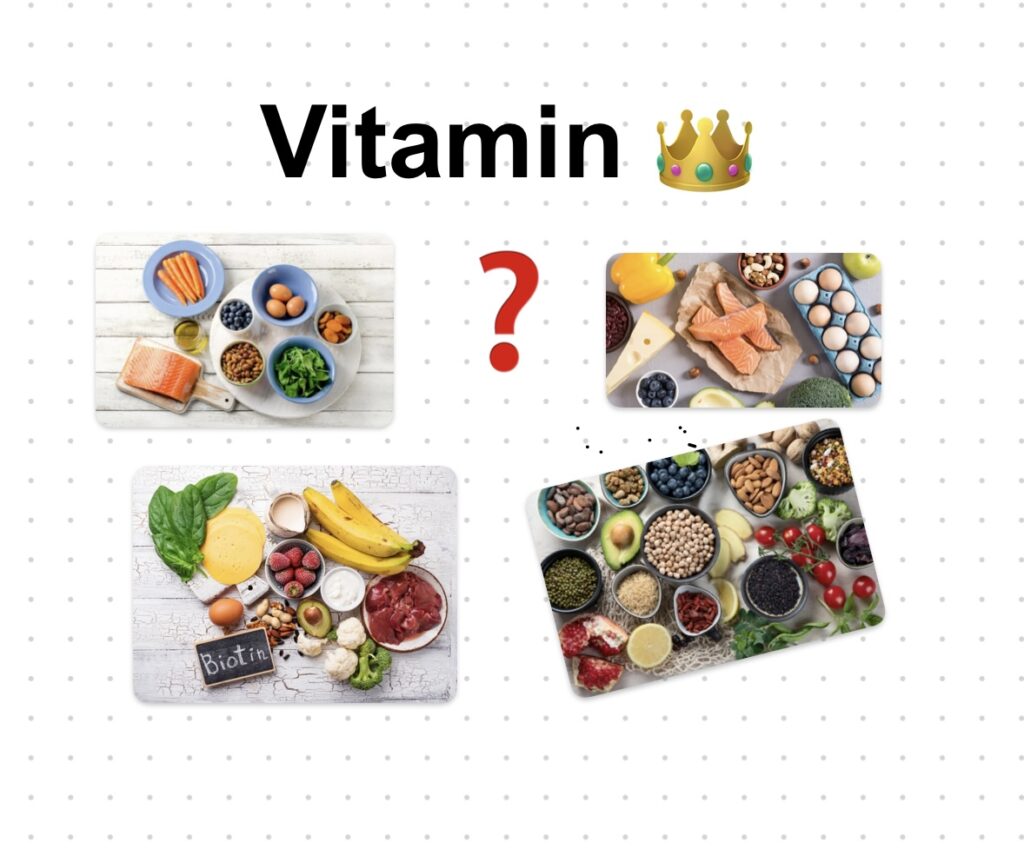Which Vitamin is the King of All Vitamins?
Introduction to Vitamins
Vitamins are essential organic compounds that our bodies require in small amounts for various physiological functions. While they do not provide energy like carbohydrates, proteins, and fats, they play crucial roles in metabolism, immunity, and overall health.
Understanding the Role of Vitamins in the Body
Essential vs. Non-Essential Vitamins
Essential vitamins are those that the body cannot produce on its own, so they must be obtained from food or supplements. On the other hand, non-essential vitamins can be synthesized within the body.
Importance of a Balanced Diet
A balanced diet consisting of fruits, vegetables, whole grains, lean proteins, and healthy fats is essential for meeting vitamin requirements. Each vitamin serves a unique function, and deficiencies can lead to various health problems.
The Key Vitamins and Their Functions
Vitamin A: The Vision Vitamin
Vitamin A is crucial for maintaining healthy vision, skin, and mucous membranes. It also supports immune function and helps in the proper functioning of organs like the heart, lungs, and kidneys.
Vitamin C: The Immunity Booster
Vitamin C is renowned for its immune-boosting properties. It acts as an antioxidant, protects cells from damage, helps in collagen production, and enhances the absorption of iron.
Vitamin D: The Sunshine Vitamin
Often called the “sunshine vitamin,” vitamin D is synthesized in the skin upon exposure to sunlight. It is essential for bone health, immune function, and mood regulation.
Vitamin E: The Antioxidant Powerhouse
Vitamin E is a potent antioxidant that protects cells from oxidative damage. It also plays a role in immune function, skin health, and blood vessel dilation.
Vitamin K: The Blood Clotting Factor
Vitamin K is necessary for blood clotting and bone metabolism. It helps in the synthesis of proteins that regulate blood clotting, calcium binding, and bone mineralization.
Vitamin B Complex: The Energy Providers
The B vitamins, including B1 (thiamine), B2 (riboflavin), B3 (niacin), B5 (pantothenic acid), B6 (pyridoxine), B7 (biotin), B9 (folate), and B12 (cobalamin), are involved in energy metabolism, nerve function, red blood cell production, and DNA synthesis.
Comparing Vitamin Benefits
Each vitamin offers unique benefits, and no single vitamin can be crowned as the “king.” Instead, they work synergistically to maintain optimal health. While some may be more well-known for specific functions, all vitamins are essential for overall well-being.
Debunking the Myth: Is There a “King” Vitamin?
The idea of a “king” vitamin is misleading because each vitamin serves distinct purposes, and their importance varies depending on individual needs and health conditions. A balanced diet that includes a variety of nutrient-rich foods is key to obtaining all necessary vitamins.
Conclusion: The Importance of a Balanced Vitamin Intake
Rather than focusing on one specific vitamin, it’s crucial to consume a diverse range of foods to ensure adequate intake of all essential vitamins. A balanced diet, along with proper supplementation when necessary, is the best approach to supporting overall health and well-being.
Unique FAQs
1. Is there one vitamin that is more important than others?
- All vitamins are essential for different bodily functions, so it’s not accurate to deem one as more important than others. A balanced intake of various vitamins is crucial for overall health.
2. Can I get all the vitamins I need from food alone?
- While it’s ideal to obtain vitamins from food sources, supplementation may be necessary for certain individuals or in cases of deficiency. Consulting with a healthcare professional can provide personalized recommendations. Check On Amazon
3. Are vitamin supplements safe to take?
- When taken as directed and in appropriate doses, vitamin supplements are generally safe. However, excessive intake of certain vitamins can lead to adverse effects, so it’s important to follow recommended guidelines.
4. How can I know if I’m deficient in a specific vitamin?
- Symptoms of vitamin deficiency vary depending on the vitamin in question. Blood tests conducted by a healthcare provider can help identify deficiencies, and they can provide guidance on appropriate supplementation or dietary changes.
5. Can vitamins cure illnesses or prevent diseases?
- While vitamins play essential roles in maintaining health, they are not a cure-all for diseases. A balanced diet rich in vitamins, along with other healthy lifestyle practices, can help support the body’s natural defense mechanisms and reduce the risk of certain illnesses.
